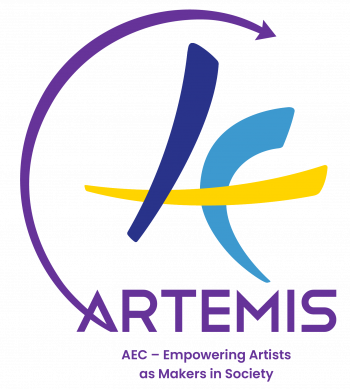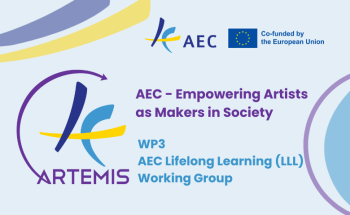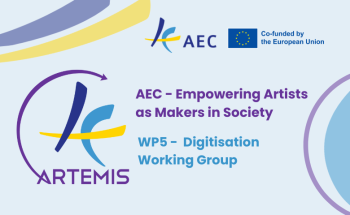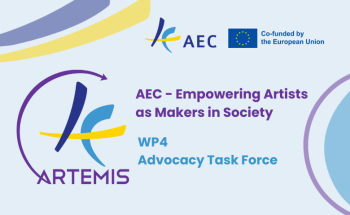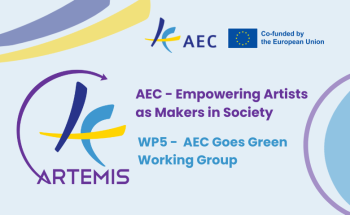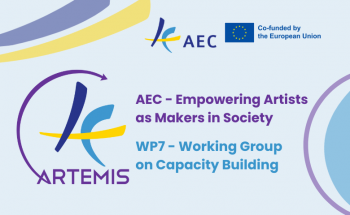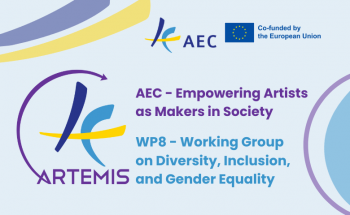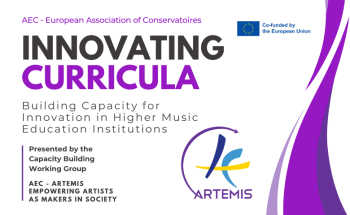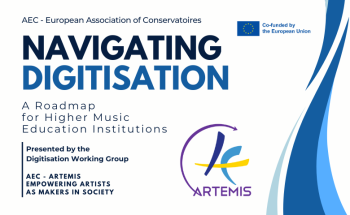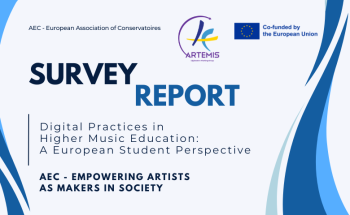WP7. Building the capacity of the HME sector to train artists as makers in society
Objectives Work Package 7
⇒ Further developing and innovating music education, from the scope and responsibilities of institutions to learning & teaching and curriculum design
Work Package 7 (WP7) addresses a fundamental need, i.e. helping HMEIs with designing and implementing the curricular change that has to take place to train artists with an active societal role, e.g. with regards to audience engagement and development.
- Revisiting rationales, tasks and objectives of HMEIs
The Capacity Building WG will act as a think tank and explore:
- The implications of redefining artists’ as ‘Makers in society’, including the need to rethink the relationship with the communities the artist serves and the new skills and competencies needed to strengthen connections between the making of art, the artists and their community-based co-creators
- The relationship between artistic quality and societal awareness and in particular how the understanding of quality/success/excellence varies a) under the influence of dynamic changes in society and b) in diverse musical cultures and traditions
The WG will regularly invite in its debates representatives and partners from the cultural and creative industries and the health and social sector as consultants.
- Innovating Learning & Teaching at HMEIs
The Capacity Building WG will investigate what impact its guidelines will have on curricula, assessment and the role of artistic research at HMEIs. The WG will take up, bring together and further investigate and develop various outcomes from the AEC-SMS project (2017-2021), with the aim of promoting student-centred learning. Core issues to be addressed are:
- The use of digital learning tools and learning environments
- Analysing changes triggered by the COVID crisis in these areas and investigating how to react on them
- Promoting a holistic approach to L&T that helps overcome the fragmentation of learning offers in HMEIs
- The role and significance of artistic research for the promotion of efficient and self-directed learning processes
- Assessment and evaluation of student performance
- Investigating and further developing peer learning and peer assessment
- Supporting clusters of institutions who will pilot curricula changes
The WG will cooperate with the LLL WG (WP3) in the latter’s task to develop a development programme for instrumental/vocal teachers.
- Promoting talents from an early age on
The joint AEC / YMTE WG will map the landscape of pre-college music education addressing young talents and explore new formats (in terms of timing, collaboration with general education, target groups & student recruitment). The WG will work on minimum standards, but at the same time respect the heterogeneity of the sector. The special needs of a jazz talent program will be investigated in consultation with the AEC PJP WG and EJN.
- Empowering music school and classroom teachers
The SCHEME (Steering Committee for the Harmonisation of European Music Education) WG, composed of 2 representatives from EMU, EAS and AEC will:
- Investigate the impact of the digital shift, the COVID crisis, social developments and societal trends (related to e.g. audience engagement / audience development, the diversity of cultural needs, migration, the idea of a European cultural citizenship as presented by the Porto Santo Charter, climate change etc.) on the tasks, skills and responsibilities of future music teachers in the formal music education sector (classroom teachers, music schools)
- Promote access and participation to music and cultural education by developing and integrating targeted audience development measures into their courses
- Examine what this means for teacher education
The SCHEME will particularly focus on working out innovative models of teacher education, presenting them as examples of good practice and develop guidelines on how to adapt teacher education curricula addressing the above mentioned topics.

